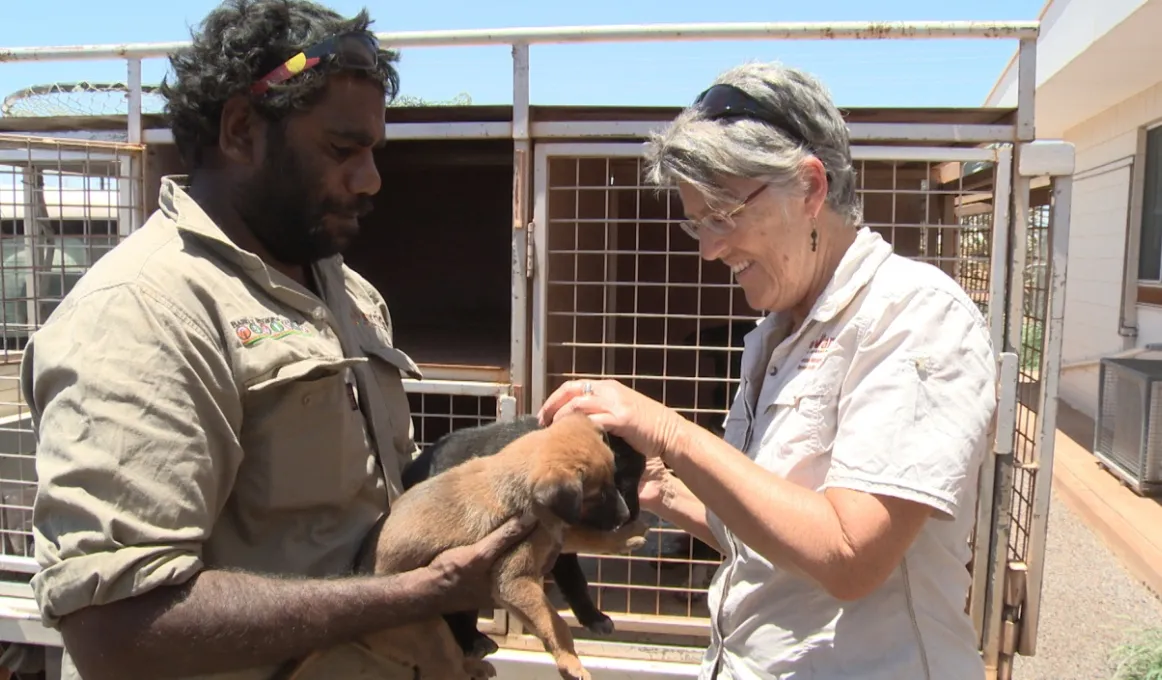Healthy animals means healthy communities

For many years, dogs have played an active part in remote Aboriginal communities as pets and hunting dogs but recently the increased numbers have affected the health of both animals and humans.
For many years, dogs have played an active part in remote Aboriginal communities as pets and hunting dogs but recently the increased numbers have affected the health of both animals and humans.
However, an Australian Government programme which has volunteer veterinarians and other health professional working closely with communities to improve dog health and control their numbers has not only resulted in healthier dogs but has also seen the health of the communities improve.
The dog health programme in the Barkly Region in the NT has been very successful with a joint project delivered by the Barkly Regional Council and charity organisation Animal Management in Rural and Remote Indigenous Communities (AMRRIC).
Scott Spurling and Dewaynne Foster are two local AMRRIC animal management workers who help deliver the programme in and around the Tennant Creek region.
“It’s good working in your own community because you already know half the people and dogs. So if we find a dog on the street, instead of taking it to the pound where it’s a good chance of being put down you take it straight home, “Scott said.
“With the animal management worker job I have done a lot of travelling, met a lot of people, done a lot of training. It’s opened my eyes up to a lot of places.”
‘You keep your dog healthy and yourself healthy and you have got a healthy family,” Dewaynne Foster said.
Brian Radovic is the Barkly Regional Council animal control officer who works closely with Dewaynne and Scott to deliver dog health programmes in a culturally respective way.
“The animal management workers role in town is a great one because they are the link between the community and the vets,’ Brian said.
“We have de-sexed 3,400 dogs over 3 years throughout the 330,000 square kilometres of country we work in”.
“Our animal health ranger’s skill levels are incredible and a lot of the volunteer vets come here and when they leave our animal health rangers are the only blokes on the ground with any skills to look after these dogs if any complications come up,” Brian said.
“The community is so much better to have these blokes employed, working with them. They are good for the community.”
Cassandra Fraser is a Tennant Creek resident who loves her dogs and is grateful of the work that AMRRIC and the council are doing.
“It’s good having Scotty and Dewaynne as animal control here in Tennant Creek because everyone knows them and they accept them more than say, complete strangers trying to tell them about their animals.”
Find out more
Making communities safe places to live for all Australians is a key priority for the Australian Government.
The Government is working with community organisations to support projects that help to create safer communities.
In line with this, The Australian Government is providing Animal Management in Rural and Remote Indigenous Communities (AMRRIC) with $1.7 million over three years to address major ongoing issues involving animals in remote Indigenous communities.
AMRRIC will work with 300 remote Indigenous communities, shires and councils to provide effective and sustainable animal management programmes.
This work results in a healthier local dog population, making the community safer for everyone.